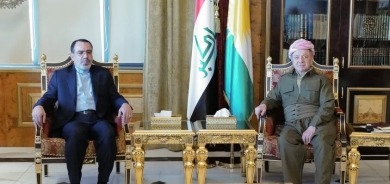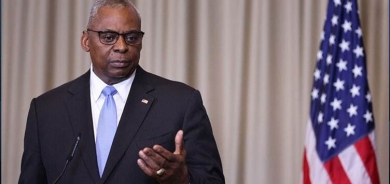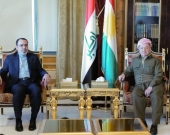New sanctions hit Iran amid diplomatic stalemate

The moves have come during difficult times for Iran’s economy, which is already suffering from previous rounds of sanctions. On the streets of Tehran, the biggest concern is the quickly rising cost of basic necessities, especially bread.
With public discontent growing, Iranian leaders have taken the unusual step of publicly acknowledging the economic pain.
“Each day I receive around 2,000 letters, e-mail messages and faxes showing people’s concerns, and their main concern is high prices,” an influential hard-line cleric, Ayatollah Nasser Makarem-Shirazi, told a gathering in the Shiite holy city of Qom this week.
In Washington, the Obama administration has sought to tabulate the damage to Iran’s economy, citing oil industry statistics that confirm plummeting exports of Iranian crude in the past year, from 2.5 million to 1.5 million barrels a day. The estimated annual cost to Iran is about $32 billion.
White House officials also cited the ripple effects of sanctions: a shortage of jet fuel and aircraft parts for Iran’s commercial airlines, a virtual boycott of Iranian ports by major cargo lines, an inflation rate that U.S. officials estimate at more than 20 percent.
“In short, sanctions are having a major adverse impact on Iran’s economy, and things will only go from bad to worse unless Iran gets serious about addressing the international community’s concerns about its nuclear program,” said a senior administration official, who insisted on anonymity in discussing U.S. strategy on Iran.
But U.S. officials and Iran experts are divided on whether any amount of economic pain will yield concessions from Iran at the negotiating table. Iranian officials, during three rounds of talks with world powers this spring, rebuffed proposals to curtail production of enriched uranium in exchange for gradual relief from sanctions.
Elliot Abrams, a former adviser on the Middle East to the George W. Bush administration, said Iran’s leaders appear willing to accept economic deprivation rather than budge on their right to enrich uranium.
“They faced a choice between their nuclear program and increased economic difficulty, and now we’ve seen their answer,” said Abrams, now a senior fellow at the Council on Foreign Relations in Washington.
The new sanctions aim to further limit Iran’s ability to sell and transport crude oil, the country’s primary source of income. The European Union’s moves ban all oil imports from Iran and block third parties from insuring Iranian oil shipments. Last year, E.U. countries accounted for 18 percent of Iranian crude exports.
Meanwhile, U.S. sanctions that passed Congress in December and went into effect Thursday focus on Iran’s central bank and seek to punish foreign financial institutions that do business with it “or other blacklisted Iranian financial entities.”
washingtonpost












